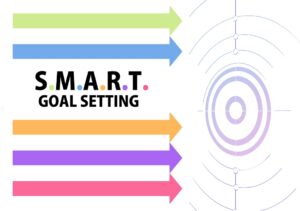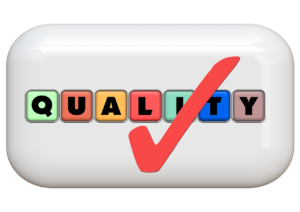Now that you have set up a delegation process management system for your business, so, what is next? It is far from the end of the exercise as it will need to be continuously improved.
A “set it and forget it” approach will not work as it will quickly bring you back to “ground zero” again. Continuous improvement of the process to assess effectiveness and performance also requires a strategy starting with monitoring team performance and results.
Monitor Team Performance and Results
Monitoring team performance and results is the first step in evaluating the effectiveness of delegation. By closely tracking progress and outcomes, leaders can identify strengths, areas for improvement, and make data-driven decisions.
Begin by

1.Encouraging open and honest communication within the team. Unfortunately, this is usually easier said than done.
Too many leaders operate under the false notion that just because they mentioned open and honest communication at a team meeting, this automatically comes into effect.
Not so! Actions speak louder than words! If there is no trust, team members will only take those words on face value.
Regularly seek feedback from team members regarding their experiences with the delegated tasks, challenges faced, and suggestions for improvement.
This feedback can provide valuable insights into the performance of the team and help identify areas for improvement and where adjustments can be made.
2. Set clear performance metrics and key performance indicators (KPIs) aligned with the delegated tasks and team objectives.
3. Increase efficiency by leveraging technology tools, project management software, or collaboration platforms to streamline data collection and tracking. These tools can automate data capture, provide real-time updates, and generate reports for analysis.
4. Regularly review progress through scheduling regular check-ins or progress meetings. Discuss the accomplishments of the team, their challenges, and any deviations from the planned timeline or expected outcomes.
These metrics should be measurable, specific, and time-bound as they serve as benchmarks for evaluating team performance. Getting the right information and data requires the use of technology tools to make data collection less cumbersome.

This will provide an opportunity to address issues in a timely manner and ensure that delegated tasks are on track.
5. Collect and analyze relevant data and information data to assess team performance. This can include quantitative data such as task completion rates, quality metrics, or productivity measures.
Qualitative data, such as feedback from stakeholders or team members, can also provide valuable insights.
Assess the Effectiveness of the Delegation Process in Management
To do this, adopt some quality management principles.
You will assess the effectiveness of delegation by reviewing whether the delegation strategies are achieving the desired outcomes and positively impacting team motivation. Use the 4-step approach below:
1.Review task for completeness and quality

Have the delegated tasks been completed on time and to the expected quality standards? Evaluate if the team members are meeting the established goals and objectives. This analysis helps determine the effectiveness of delegation in achieving the desired outcomes.
2. Measure team motivation and engagement
Use surveys, interviews, or feedback sessions to gauge how team members perceive the delegation process and whether it has positively influenced their motivation and job satisfaction.
Carefully evaluate team motivation and engagement levels throughout the task delegation process and use to review information gathered from surveys and feedback sessions for authenticity.
3. Seek stakeholder feedback
Gather feedback from stakeholders who interact with the team or are impacted by the delegated tasks. Their perspectives can provide insights into the effectiveness of delegation in meeting stakeholder needs and expectations.
4. Evaluate how team is developing in the delegation process management
Assess the growth and development of team members resulting from the delegated tasks. Have the employees acquired new skills, expanded their knowledge, or demonstrated personal and professional growth?
Answer these questions to see if the delegation exercise was effective and brought about individual and team development.
Make Adjustments and Improvements
Based on the results of your evaluation, it is usually necessary to make some adjustments and improvements to enhance effectiveness and maintain team motivation. The best way to do this starts with
Communicating and involving the team
Seek their input and involvement in refining delegation strategies. Their insights can provide valuable perspectives and increase their buy-in and motivation ensuring a higher rate of success in the cycle of continuous improvement.
Proceed to
Identify areas for improvement: Analyze the evaluation results to identify areas where delegation could be enhanced. This may include addressing specific challenges, refining communication processes, or providing additional support or resources.
Adjust delegation strategies if required: Modify delegation strategies based on the identified areas for improvement. This could involve refining task assignments, clarifying expectations, adjusting timelines, or reallocating resources.

Provide additional training or support: If the evaluation reveals skill gaps or areas requiring improvement, offer additional training or support to team members.
This can include workshops, mentorship programs, or access to relevant resources to enhance their abilities to handle delegated tasks effectively.
Finally,
Continuously monitor and adjust: Delegation is an ongoing process, and continuous monitoring is key to its success.
Regularly assess the impact of adjustments and improvements, and iterate as needed. Solicit feedback from team members and stakeholders to ensure that the adjustments are effectively addressing any challenges and enhancing team motivation.
Conclusion – Delegation Process Management and Continuous Improvement
By actively monitoring team performance, assessing the effectiveness of delegation, and making necessary adjustments and improvements, leaders and business owners can optimize the delegation process, enhance team motivation, and achieve better overall results.
And, don’t think this is irrelevant because you are a small business.
For help with delegation or any other process improvements CONTACT US NOW

